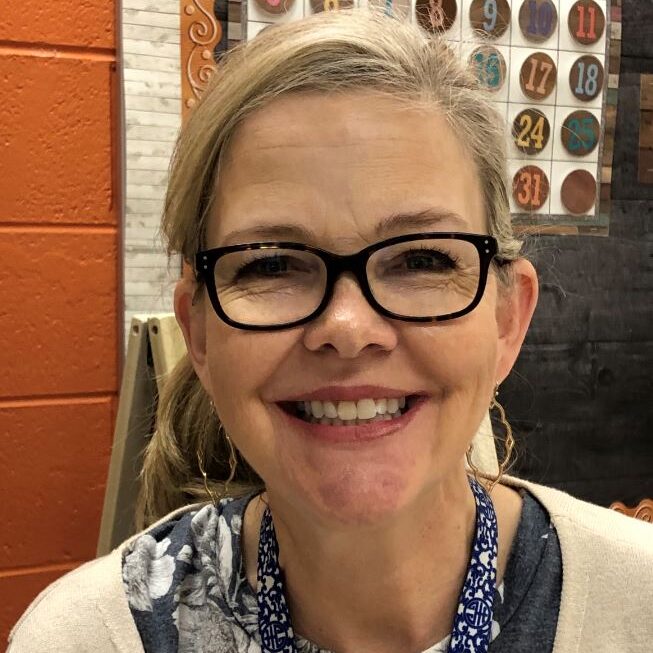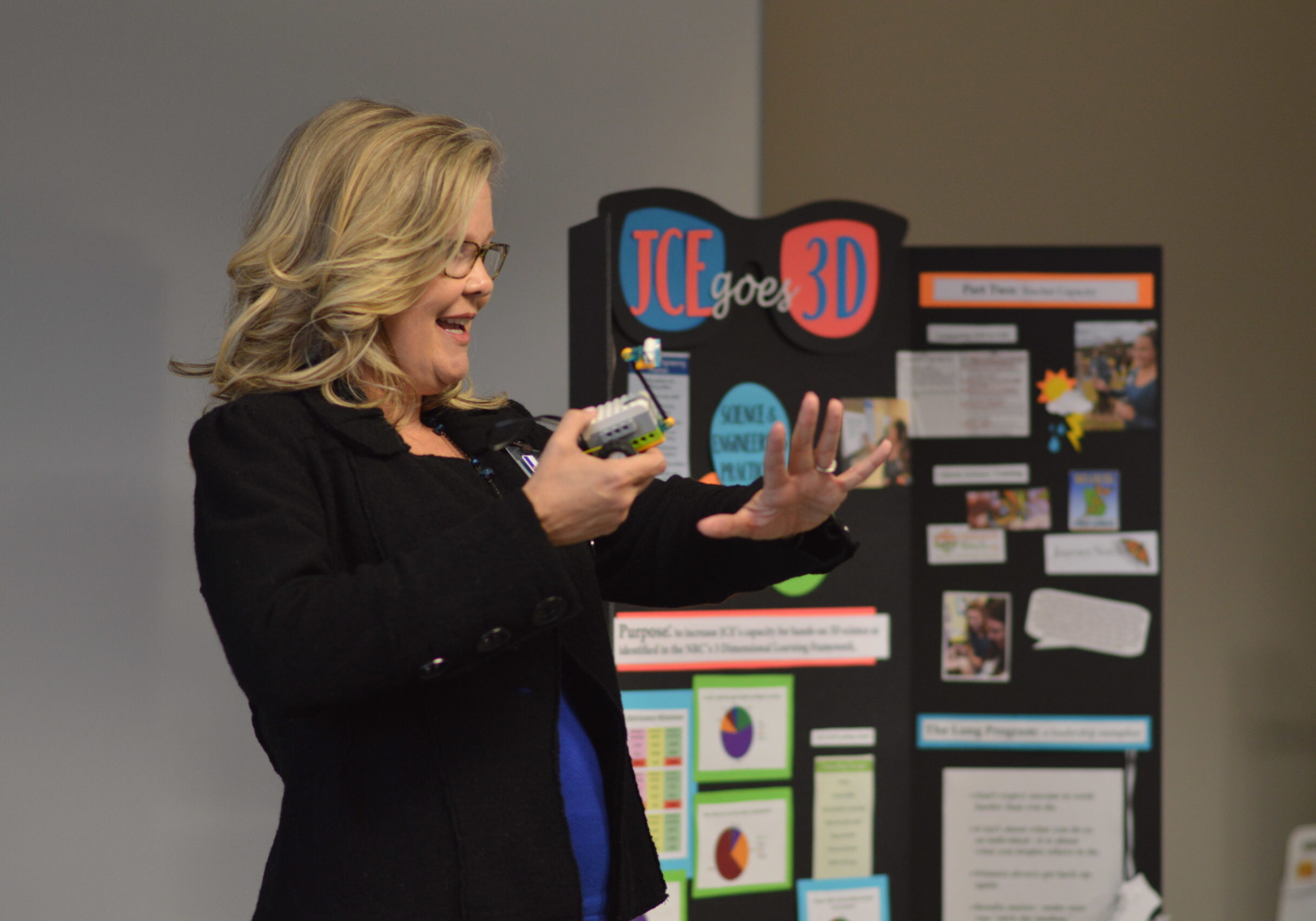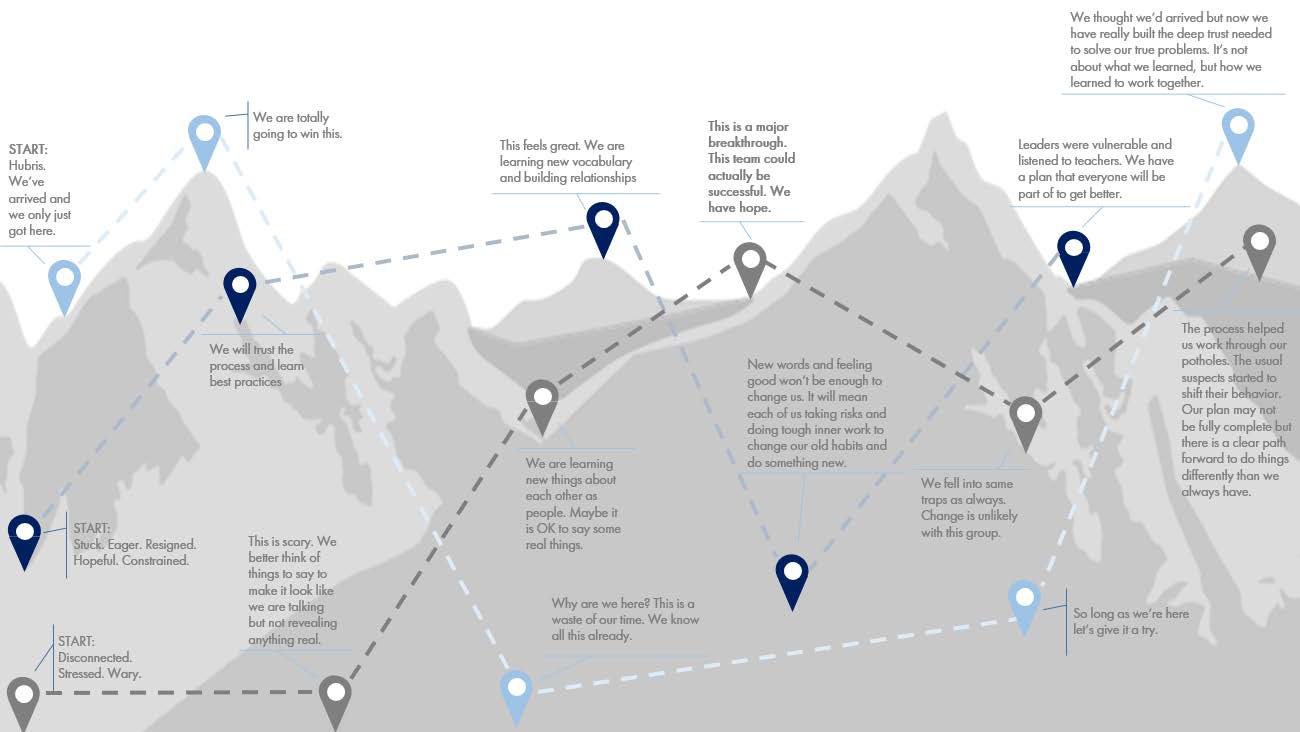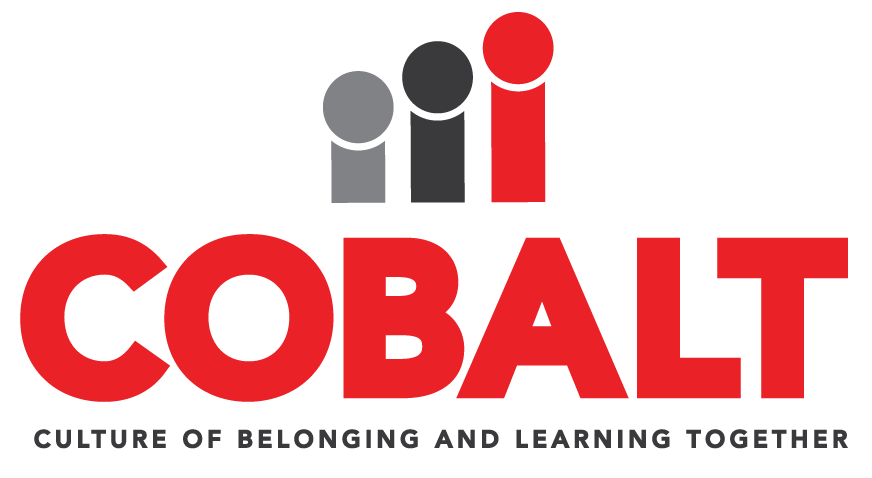Transform leaders through the design of adult learning

Letishia Seabrook Jones, Ph.D.
Senior Program Director
Q: What are the design choices that you believe contribute to transformation in GLISI’s Aspiring Leaders Program?
A: Aspiring leaders is about more than teaching someone how to lead and then awarding a certificate at the end of a course. More than anything else, we see the program as a chance for leaders to learn more about how their school system defines leadership excellence, to examine their own beliefs about what makes leaders great, and then guide participants through a significant amount of self-reflection to identify where their strengths already lie and where they have space and room to grow. The integration of self-reflection and authentic opportunities to practice and hone new skills is what contributes to meaningful learning and actual change in how people lead, not just what they know.
Q: How does this work with aspiring leaders affect school culture?
A: Leaders have a profound influence on culture, which is living, breathing and fluid. As graduates return to their classrooms or transition into administrative positions, they report exerting influence on the climate and culture of their organizations in a variety of ways. Examples include asking different questions of themselves or of school and district leaders; challenging long-held assumptions about what works or what could work; being more open to the perspectives of others; and having a more informed lens on how to go about leading positive change.
The capstone projects can also have a more immediate impact on how students experience the climate and culture in the schoolhouse. Several alumni have reported bringing capstones like the launch of the Grizzlies Mentor Program featured in this report to scale. These are tangible, positive marks GLISI alumni are leaving on school culture that change lives.

Suzanne Pitz
Assistant Administrator, Forsyth County Aspiring Leader Cohort 5
Q: How did your thinking evolve as a participant in the Aspiring Leaders Program?
A: I used to think leadership was equivalent to hard work and long hours and that one person working long and hard was great leadership. Now, I think that a leader is someone who inspires others to work alongside a leader towards a common goal. Leadership is more than just one person doing an excellent job. It is all about getting others on board and working together to do hard things.
Q: IN WHAT WAYS ARE YOU LEADING DIFFERENTLY?
A: Before the program, I would rarely ask for help from others because I knew if I did it myself it would be done well. Now, I see that I need to build capacity in those around me to contribute to our cause because everyone deserves a shot a honing their skills. I don't operate as an island anymore.

Q: HOW HAS YOUR SCHOOL CULTURE IMPROVED?
A: Culture is always evolving. I know that I have an impact, and that this program has given me the tools to be a change-maker. I challenge myself daily to bring progressive ideas, suggestions and implementation plans into the school.
Transform culture through
team-centered coaching
We design for transformation of adults, but recognize that transformation rarely happens in silos. Leaders lead teams, and transformation of the shared beliefs, values and actions—in a word, culture—is what ultimately informs improvements in organizational equity and excellence.
We highlight the arcs of three example districts from Base Camp and Leadership Summit here to offer a view into how each team we coach is unique and how each journey to transformation takes different turns and ends in different places. All along the continuum toward profound personal change we see evidence of culture shifts as deep trust, candor, collaboration and vibrant exchange of ideas through professional dialog grow.

Transform by shifting mindsets
Technical competency is only one facet of effective leadership. Social-emotional skills are what set remarkable leaders apart. In FY19, we launched a campaign to elevate the message that SEL isn’t just for kids: it’s the most essential aspect of leader preparation, development and growth.
We launched a research endeavor to understand:
- The extent to which school and district leaders in Georgia value social and emotional learning (SEL) for themselves
- The extent to which schools and districts support social and emotional development for incumbent leaders
- The particular social and emotional competencies that leaders are interested in fostering in themselves and the teams they lead
Our findings were published in this report.
To share what we learned, we launched a dialog campaign that included multiple presentations, media spotlights, and engagement through our social media channels. Over 375 business and education leaders engaged through our face-to-face engagements in FY19, including participants at:
- The Georgia Association of Education Leaders
- The Fanning Institute Community Leadership Conference
- The Georgia School Superintendents Association
- The Georgia School Board Association
- The Georgia Chamber of Commerce
An additional 200 participants engaged in conversation around this topic through our Twitter Chat and our op-ed was published in the AJC to illuminate the relationship between leader SEL, school culture and school safety for an even broader audience.
A key finding in our report is that leaders wanted access to tools and opportunities to grow their social-emotional competencies. We knew of a variety of resources available for this purpose, but could not identify a single resource that offered self-guided growth and learning opportunities for leaders. That realization sparked the launch of GLISI’s SEL toolkit in June, 2019. It offers curated resources designed designed to go beyond merely filling an information gap, but intentionally equip leaders with tools and strategies to exercise their SEL muscle.
Since it's launch, the toolkit has been accessed by 1,543 unique visitors.
Check out the toolkit!
What's next?
We are actively extending our thought leadership campaign and continuing to grow, improve and promote the SEL toolkit in FY20. Because of the widespread interest among district leaders, legislators, and leadership development providers in how to more formally integrate our learning into adult learning experiences, we have also launched a new service line, COBALT (Cultures of Belonging and Learning Together), to explicitly focus on the social-emotional growth of school leaders. We are currently piloting our work in Carroll County and Clayton County school systems and look forward to sharing stories of impact in our FY20 annual report.


Photos from COBALT with our partners in Clayton County.

